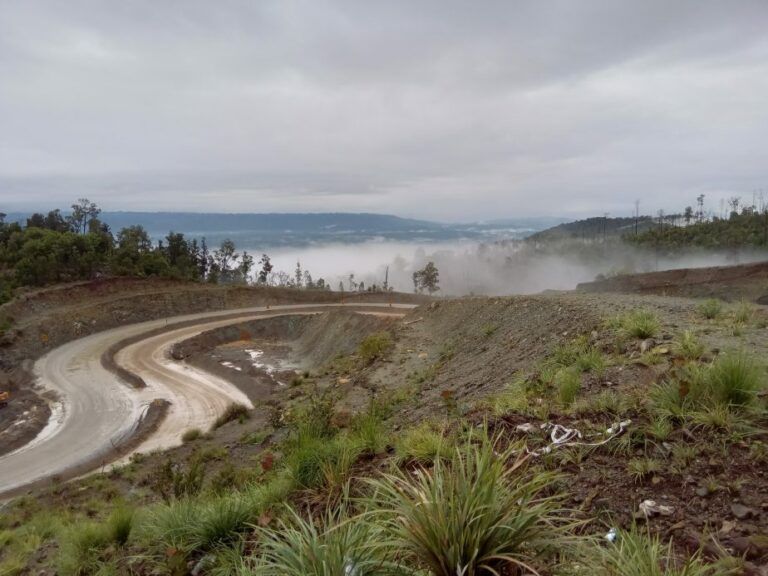Originally published in The Diplomat on July 5, 2024.
On June 24, two multinational mining and mineral processing giants, France-based Eramet and Germany-based BASF, announced that they would cancel plans for a $2.6 billion nickel-cobalt refinery located within the Indonesia Weda Bay Industrial Park (IWIP), in North Maluku, Indonesia.
The companies cited commercial reasons, but the Indonesian government would be short-sighted to ignore other concerns. In an indirect reference to human rights and environmental concerns with nickel processing operations at IWIP, a BASF spokesperson said the company needs a “secure, responsible, and sustainable supply of critical raw materials.” Implicit in the companies’ statements is that they are concerned about increasing their reputational risk through a new investment at IWIP.
The announcement will be welcomed by communities living near IWIP, whose human rights and environment are threatened by the growing nickel industry. In January, Climate Rights International released a 124-page report, “Nickel Unearthed: The Human and Climate Costs of Indonesia’s Nickel Industry,” documenting how the massive, multi-billion-dollar IWIP industrial complex in North Maluku and nearby nickel mining is violating the rights of local communities, including Indigenous peoples, causing significant deforestation, air and water pollution, and emitting massive amounts of greenhouse gases from captive coal plants exacerbating global warming and the climate crisis worldwide. Indonesia is the world’s largest supplier of nickel, and demand for the “critical mineral” has skyrocketed in recent years due to its increasing use in electric vehicle batteries.
In 2020, BASF and Eramet announced plans to build a nickel and cobalt refining facility, called Sonic Bay, in IWIP. The project would have produced 67,000 tons of nickel and 7,500 tons of cobalt per year, using high-pressure acid leach (HPAL) technology, which uses high temperatures and chemicals to extract nickel from laterite ore.
According to a statement provided by Eramet to Climate Rights International in December 2023, the Sonic Bay project would have sourced nickel ore from PT Weda Bay Nickel, one of the country’s largest nickel mines, in which Eramet is a minority shareholder. The plant would have also relied on IWIP’s captive coal plants or diesel generators to power most of the plant’s energy needs until solar panels could be installed on dry tailing stacks, roughly five years after the project started operations.
Climate Rights International had urged Eramet and BASF to wait to make a final investment decision regarding the Sonic Bay project until all land conflicts between IWIP and local communities at the proposed project site were resolved and community members fully and fairly compensated for their lands. We also called on the two companies to ensure that waste from the proposed plant did not add to the massive pollution already caused by IWIP, by establishing its own waste management system to neutralize acid waste and effectively abate air and water pollution that is already affecting the health of local residents.
While the cancellation of the Sonic Bay project may result in less pollution for local communities, the Indonesian government should do more to minimize the impacts of nickel mining and refining on communities living near IWIP and other nickel industrial parks.
The Indonesian government should now insist that the three main shareholders in IWIP – the Chinese firms Tsingshan Holding Group, Huayou Cobalt, and Zhenshi Holding Group – conduct serious investigations to fully identify the harms caused by their operations and engage in good faith mediation with impacted communities to provide compensation and end harmful practices. The government should also strengthen laws and regulations to minimize the impacts of nickel mining and refining, including on Indigenous communities.
The cancellation of the Sonic Bay project is an opportunity for the Indonesian government and companies at IWIP – and the wider nickel industry in Indonesia – to show that they can do two things that should not be in conflict: secure the minerals needed to power the energy transition and protect human rights and the environment.
Photo Credit: A road in the vicinity of the Weda Bay Nickel mine in North Maluku, Indonesia. (Photo 289075697 © Sudarman Tinamba | Dreamstime.com)







